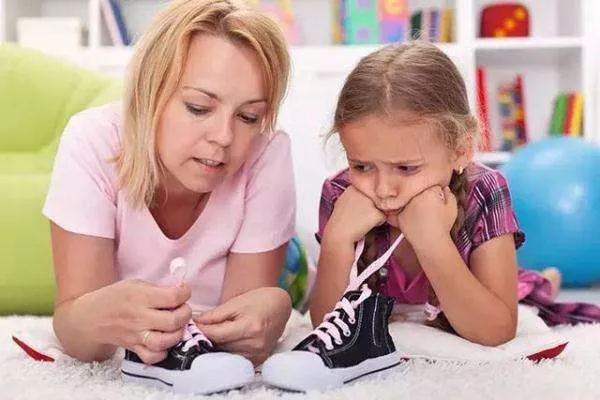Puberty is a critical period of development, marked by a series of biological, emotional, and psychological changes. As adolescents navigate these changes, their self-esteem—a person’s overall sense of self-worth or personal value—can significantly influence their experience of puberty. In turn, the physical and social challenges of puberty can have a profound impact on self-esteem. Understanding this dynamic relationship is essential for parents, educators, and mental health professionals to support adolescents through this transformative stage.
The Foundations of Self-Esteem
Self-esteem is often established in early childhood, influenced by interactions with family members, peers, and the broader social environment. It is shaped by the experiences of success and failure, the level of acceptance and love from caregivers, and the feedback children receive from their surroundings. By the time children enter puberty, they have already developed a basic sense of self-esteem, which will either be bolstered or challenged by the changes of adolescence.
During puberty, the foundations of self-esteem are tested. The biological and emotional shifts that occur can alter an adolescent’s self-perception, sometimes leading to fluctuations in self-esteem. While some adolescents emerge from puberty with a stronger sense of self, others may struggle with self-doubt and insecurity.
The Biological Changes of Puberty
Puberty involves a cascade of hormonal changes that trigger physical developments such as the growth of body hair, the onset of menstruation, changes in body shape, and the deepening of the voice. These changes are often accompanied by the onset of sexual awareness and curiosity, which can add another layer of complexity to self-esteem.
The Role of Physical Appearance
One of the most significant factors affecting self-esteem during puberty is physical appearance. Adolescents become acutely aware of their bodies and how they compare to others. For some, this awareness can lead to positive feelings of growth and maturity. However, for many others, it can result in negative self-evaluations, particularly if their development does not align with societal ideals of attractiveness or if they experience early or late maturation compared to their peers.
Early-maturing girls, for example, may feel self-conscious about their bodies and may experience unwanted attention, leading to lower self-esteem. On the other hand, boys who mature later than their peers may feel inadequate and struggle with feelings of inferiority. These physical comparisons can have a lasting impact on self-esteem, influencing how adolescents view themselves well into adulthood.
The Influence of Hormones
Hormones, particularly estrogen and testosterone, play a crucial role in the physical and emotional changes of puberty. These hormones not only drive the development of secondary sexual characteristics but also affect mood and behavior. Adolescents may experience mood swings, increased irritability, and heightened sensitivity to criticism, all of which can contribute to fluctuations in self-esteem.
For instance, hormonal changes can lead to acne, weight gain, or other physical conditions that may cause embarrassment or shame. These issues can exacerbate feelings of low self-esteem, particularly if adolescents feel they do not meet societal standards of beauty.
The Social and Emotional Changes of Puberty
Puberty is not just a time of physical change; it is also a period of significant social and emotional development. Adolescents begin to seek independence from their parents, form deeper friendships, and navigate the complexities of romantic relationships. These social dynamics can heavily influence self-esteem.
Peer Relationships and Social Comparison
Peer relationships become increasingly important during puberty. Adolescents often look to their peers for validation and acceptance, and they may engage in social comparisons to gauge their own worth. Positive peer relationships can boost self-esteem, while negative interactions, such as bullying or social exclusion, can severely damage it.
Social media has intensified the pressure to conform to certain standards of appearance and behavior. Adolescents are constantly exposed to curated images of perfection, which can lead to unrealistic expectations and a distorted sense of self. This can be particularly damaging during puberty when self-esteem is already vulnerable.
Family Dynamics
Family relationships also play a critical role in shaping self-esteem during puberty. Supportive and understanding parents can provide a secure base from which adolescents can explore their changing identities. On the other hand, critical or overprotective parenting can undermine self-esteem, leading to feelings of inadequacy or dependency.
Adolescents who feel valued and understood by their families are more likely to develop a healthy sense of self-esteem. Conversely, those who experience conflict, neglect, or emotional distance may struggle with self-worth.
Identity Formation
Puberty is a time when adolescents begin to explore their identities, asking themselves questions about who they are and who they want to become. This process of identity formation is closely linked to self-esteem. Adolescents who are able to develop a coherent and positive sense of identity are more likely to have high self-esteem. However, those who struggle with identity confusion may experience self-doubt and low self-esteem.
The Impact of Low Self-Esteem During Puberty
Low self-esteem during puberty can have far-reaching consequences. Adolescents with low self-esteem may be more vulnerable to mental health issues such as depression, anxiety, and eating disorders. They may also engage in risky behaviors, such as substance abuse or early sexual activity, as a way to cope with their insecurities.
Mental Health Issues
Adolescents with low self-esteem are at an increased risk for developing mental health problems. Depression and anxiety are common among teens who struggle with self-worth. These conditions can create a vicious cycle, where low self-esteem leads to mental health issues, which in turn further erode self-esteem.
For example, an adolescent with low self-esteem may withdraw from social activities, leading to feelings of loneliness and isolation. This isolation can worsen feelings of depression, making it even more difficult for the adolescent to engage with peers and build positive relationships.
Risky Behaviors
Low self-esteem can also lead adolescents to engage in risky behaviors as a way to seek validation or escape from their negative self-perceptions. For instance, some teens may experiment with drugs or alcohol in an attempt to fit in with peers or to numb their emotional pain. Others may engage in early or unprotected sexual activity, believing that their worth is tied to their sexual desirability.
These behaviors can have serious consequences, both in the short and long term. Substance abuse can lead to addiction, while risky sexual behavior can result in unwanted pregnancies or sexually transmitted infections. Additionally, these behaviors often do not address the underlying issues of low self-esteem, leading to a cycle of self-destructive behavior.
Academic Performance
Self-esteem also affects academic performance during puberty. Adolescents with low self-esteem may struggle with motivation and concentration, leading to poor academic outcomes. They may also be more likely to experience test anxiety or to give up easily when faced with challenges.
On the other hand, adolescents with high self-esteem are more likely to approach academic tasks with confidence and persistence. They are better equipped to handle setbacks and are more likely to seek help when needed. As a result, they tend to achieve better academic outcomes, which in turn reinforces their positive self-esteem.
See Also: How Confidence Makes You Attractive?
Strategies for Supporting Healthy Self-Esteem During Puberty
Given the significant impact of self-esteem on an adolescent’s experience of puberty, it is crucial for parents, educators, and mental health professionals to provide support during this time. There are several strategies that can help adolescents build and maintain healthy self-esteem.
Encouraging Positive Body Image
One of the most effective ways to support self-esteem during puberty is to promote a positive body image. This can be achieved by encouraging adolescents to appreciate their bodies for what they can do rather than how they look. Parents and educators should emphasize the importance of health and well-being over appearance.
It is also important to challenge societal standards of beauty and to help adolescents recognize that everyone develops at their own pace. By promoting diversity and body positivity, we can help adolescents develop a more accepting and compassionate view of themselves.
Fostering Healthy Relationships
Healthy relationships are essential for building self-esteem during puberty. Parents, educators, and peers can all play a role in fostering these relationships. Encouraging open communication, mutual respect, and empathy can help adolescents feel valued and supported.
It is also important to address any instances of bullying or social exclusion immediately. Adolescents who experience negative peer interactions should be given the tools to assert themselves and to seek out positive relationships.
Providing Emotional Support
Emotional support is crucial during puberty, especially for adolescents who may be struggling with self-esteem. Parents and caregivers should make an effort to listen to their adolescents’ concerns without judgment and to offer reassurance and guidance.
Mental health professionals can also provide valuable support by helping adolescents develop coping strategies for dealing with stress and negative self-perceptions. Therapy can be particularly beneficial for those who are experiencing significant self-esteem issues or who are at risk for mental health problems.
Promoting Self-Compassion
Teaching adolescents to practice self-compassion is another effective way to support self-esteem. Self-compassion involves treating oneself with the same kindness and understanding that one would offer to a friend. This can help adolescents navigate the challenges of puberty with greater resilience and confidence.
Self-compassion can be encouraged by helping adolescents recognize and challenge negative self-talk, by promoting mindfulness and self-care practices, and by modeling self-compassion in our own behavior.
FAQs
1. What is self-esteem?
Self-esteem is an individual’s overall sense of self-worth or personal value. It reflects how much a person appreciates and likes themselves, encompassing beliefs about oneself and emotional states such as triumph, despair, pride, and shame.
2. How does puberty affect self-esteem?
Puberty can affect self-esteem in several ways. Physical changes can lead to body image concerns, social dynamics can influence feelings of acceptance or rejection, and hormonal shifts can affect mood and behavior. These factors can either bolster or challenge an adolescent’s self-esteem.
3. Can low self-esteem during puberty lead to mental health issues?
Yes, low self-esteem during puberty can increase the risk of developing mental health issues such as depression, anxiety, and eating disorders. It can also lead to risky behaviors as adolescents may seek validation or escape from negative self-perceptions.
4. How can parents support their child’s self-esteem during puberty?
Parents can support their child’s self-esteem by promoting a positive body image, fostering healthy relationships, providing emotional support, and encouraging self-compassion. Open communication and active listening are also crucial.
5. What role do peers play in an adolescent’s self-esteem during puberty?
Peers play a significant role in shaping an adolescent’s self-esteem during puberty. Positive peer relationships can boost self-esteem, while negative interactions, such as bullying or social exclusion, can damage it.
Conclusion
The relationship between self-esteem and puberty is complex and multifaceted. While the physical, emotional, and social changes of puberty can challenge an adolescent’s self-esteem, they also present an opportunity for growth and self-discovery. By providing support and guidance during this critical period, we can help adolescents develop a strong sense of self-worth that will serve them well into adulthood.
Related Topics:



















